The 7 Best Competitor Keyword Research Tools in 2023
Competitive keyword analysis is one of the must-do things that every SEO has to follow. The challenge is that you or your competitors can potentially rank for thousands of keywords, you cannot find them and compare them one by one manually.
Luckily, there are a few competitor keyword research tools can help you.
Here we list 7 competitor keyword research tools you can use to find competitor keywords. With these tools, you can get a list containing all common and unique keywords your rivals rank for and discover the best new opportunities for you to get quick SEO and PPC wins.
Let’s check them.

Contents
1. The Google Keyword Planner tool
Most SEOs may be familiar with the Google Keyword Planner tool for help finding the right keyword to target on their websites. However, do you know that you can also use this tool to find competitor’s keywords?
Once you log into your Google admin account, select “Discover new keywords” and “Start with a website”. Then, enter the website URL of the competitor that you want to analyses and click on “Get Results”. Google will generate a list of competitor terms for you quickly and easily.
What’s more, the tool is completely free to use!
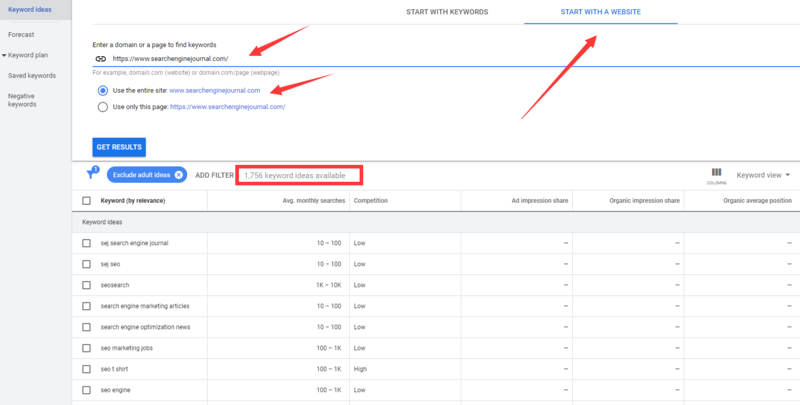
2. Ahrefs
Ahrefs is one of the best SEO tools in the market. This tool also provides many useful features for competitor keyword analysis.
This tool allows you to:
- Find competitor websites with overlapping keywords. (Enter your website URL into Ahrefs’ Site Explorer and go to the Competing Domains report.)
- Download the list of your competitor’s keywords. (Enter your competitor’s website URL into Ahrefs’ Site Explorer and go to the “Organic Keywords”.)
- Use content gap tool to find keywords that other websites rank for, but you don’t. (Enter your website URL into Ahrefs’ Site Explorer and go to the Content Gap tool.)
- Analyze competitor’s keyword by search volume and keyword difficult.
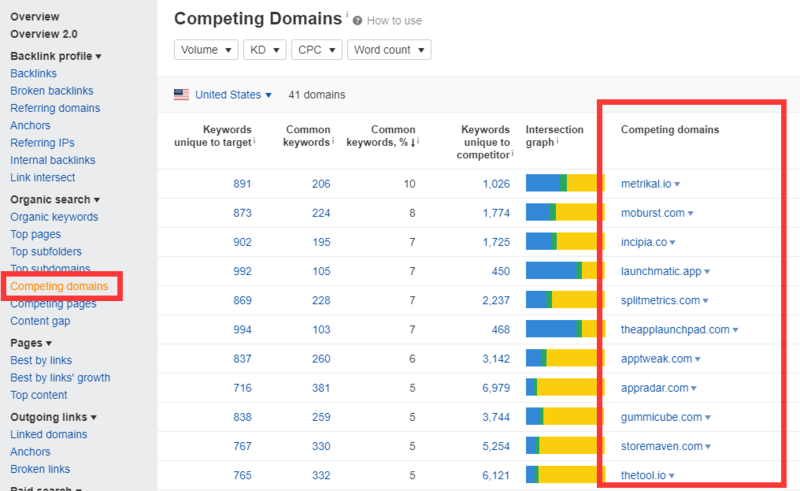
3. SEMRush
SEMrush is another great tool for competitor keyword research. It provides “Organic Search Report” and “Keyword Gap Analysis” report that you can use to identify the best keywords for competitive websites. All you need to do is input the website of your competitor and collect information from the list provided by SEMrush.
The “Organic Search Report” provides in-depth information about your competitor’s keyword performance. And the “Keyword Gap Analysis” report shows you the keywords that work best for you competitors where your website does not rank.
Not only do you get useful insights into ranking potential, but you can also see the URL that ranks for each keyword term. This can be very helpful in helping you to figure out what kind of content you need to produce to get ahead of the competition.
4. SpyFu
SpyFu is a tool that is totally dedicated towards competitive intelligence research alone. Apart from keyword research, it will help you understand the kind of method that your competitors use in terms of organic and paid search.
For competitor keyword research, you can enter your competitor’s URL into the search box provided on the SpyFu website and download their keywords into a spreadsheet. This tool sorts the keyword list by rank, search volume, click volume, as well as newly ranked keywords, and rank gains & losses. You’ll be able to see things like the estimated monthly clicks generated by your competitors, and their top organic competitors too.
5. Moz
Moz offers several tools that can help you analyze your competitors’ keywords.
Its Domain SEO Analysis Tool can show you websites that target the same keywords you do, for instance. You can also use Moz’s Keyword Explorer to compare your keyword rankings to those of your competitors. It will tell you about the keyword difficulty, volume and expected CTR rate scores that will tell how much of an impact you can make in terms of ranking and driving traffic to your site.
6. BuzzSumo
BuzzSumo is particularly useful if you need help figuring out who your main competitors are for certain terms before you start producing new content for your site.
In BuzzSumo’s Keyword Tool you can find your competitor’s keywords with a simple domain search. It shows you what proportion of your competitor’s site is ranking in positions 1 –3, their monthly organic traffic stats, and their authority metrics.
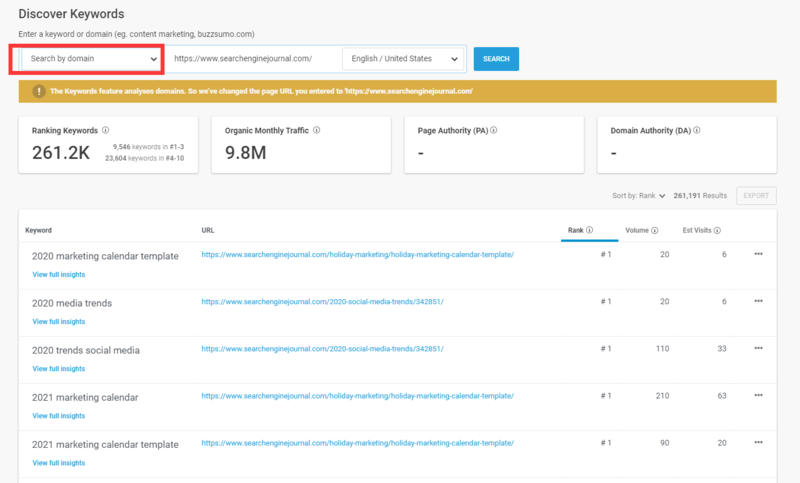
Also, you can find your competitor’s best content ideas with its “Content Analyzer” tool.
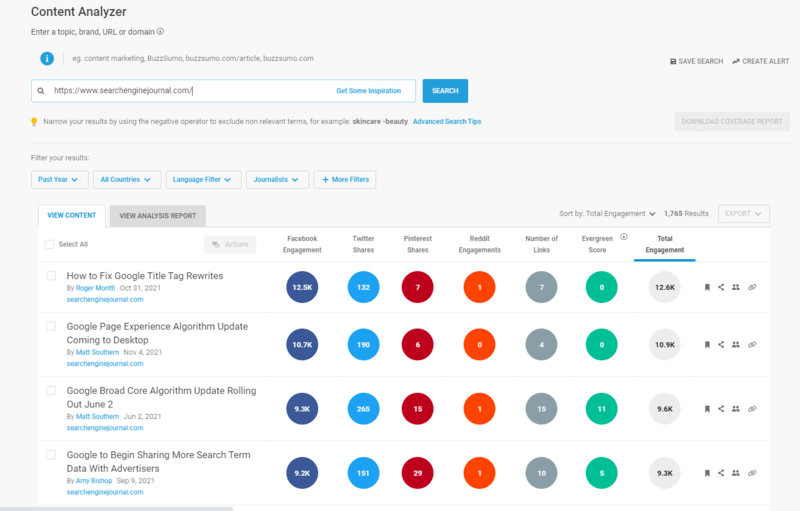
7. SERPstat
Like Ahrefs and SEMRush, SERPstat is an all-in-one SEO platform that enables you to conduct competitor research, keyword research, backlink analysis, site audits, rank tracking, clusterization, and more.
It gives you an overview of any particular website, including its search visibility, monthly search traffic, and the number of organic and paid keywords that it is ranking for. Here, you can get a list of keywords your competitor ranks for.
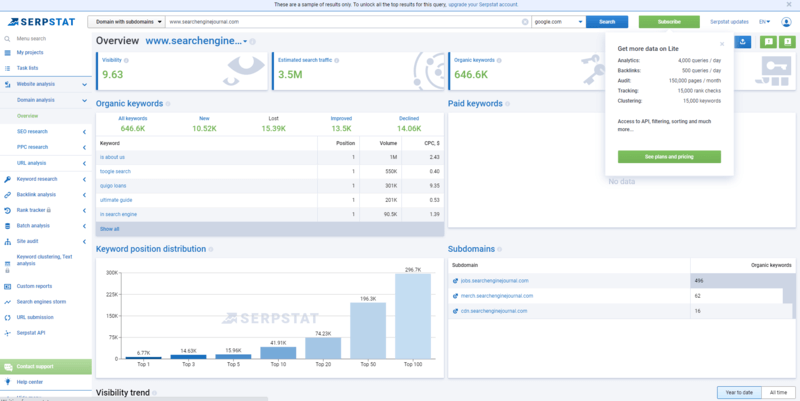
Another great feature that makes Serpstat worth the investment is its competitor research features. It lists all important details about your competitors such as:
- The number of common keywords you’re targeting
- The number of keywords that your competitor is ranked for, but you’re not targeting yet
- The overall search visibility of your competitor domains in comparison to past data

You can also set side-by-side websites’ comparison of the keywords that they are ranking for in Google search results.
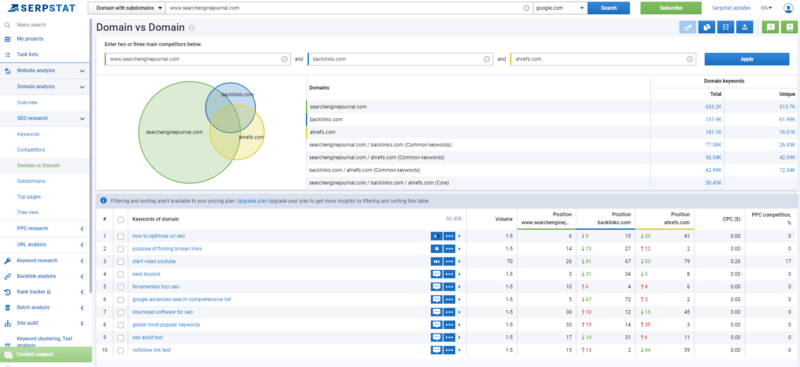
Conclusion
These are 7 competitor keyword research tools that are most recommended. Google Keyword Planner is completely free, and most of the tools in the list have a trial version before you pay. Therefore, you can try many of them to make the final decision.
